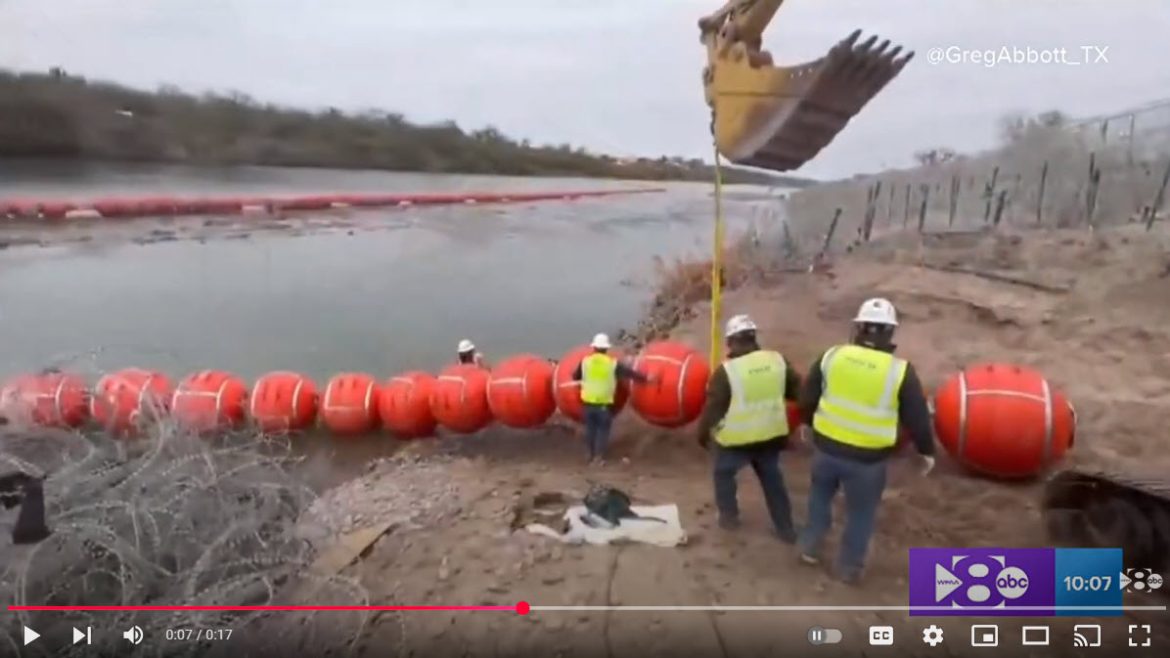Texas is ramping up its border security measures under the renewed leadership of the Trump administration, adding more buoys to its controversial floating border wall in the Rio Grande near Eagle Pass. The initiative, spearheaded by Texas state officials and supported by the federal government, aims to curb illegal crossings and reinforce border security along the U.S.-Mexico boundary.
The enhanced buoy deployment comes as part of a broader strategy to deter asylum-seekers and migrants from attempting dangerous crossings. Lieutenant Chris Olivares of the Texas Department of Public Safety reports a sharp decline in crossing attempts near the buoys, citing that asylum-seekers in Mexico are avoiding areas where the barriers are in place. He highlights that the drop in crossings is particularly significant during colder months, as the frigid waters pose a heightened risk of hypothermia for anyone attempting to swim.
The floating barriers, consisting of interconnected buoys designed to block access, are being expanded along strategic sections of the river. State officials view the initiative as a critical tool in their efforts to secure the border. Lieutenant Olivares emphasizes the program’s effectiveness, stating that plans are underway to deploy additional buoys to further restrict access points.
Supporters of the initiative argue that the increased security measures are necessary to address illegal immigration and the risks posed by human trafficking and drug smuggling. Governor Greg Abbott and state officials express confidence in the buoy system, crediting it with creating immediate changes along the border and reducing the strain on local law enforcement.
Critics, however, raise concerns about the humanitarian and environmental implications of the floating wall. Advocacy groups point to the dangers migrants face when attempting to navigate alternative, often more treacherous, crossing routes. Environmentalists also warn of potential damage to the river’s ecosystem and disruptions to wildlife.
The Trump administration’s renewed focus on border security includes declaring Mexican cartels as foreign terrorist organizations, a move aimed at intensifying efforts to combat drug trafficking and organized crime. Federal officials are coordinating closely with Texas authorities to implement measures that align with the administration’s commitment to stricter immigration enforcement.
The expansion of the buoy system marks a significant escalation in border security efforts, reflecting a hardline stance on immigration under the new administration. As the program continues, debates over its effectiveness and ethical implications are expected to intensify, highlighting the complex challenges of managing border security in a polarized political landscape.



